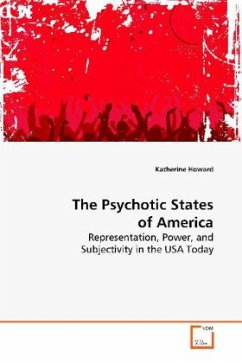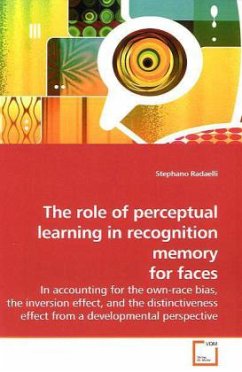
The Vilification of Arabs and Muslims
A Study of Perception and Bias
Versandkostenfrei!
Versandfertig in 6-10 Tagen
32,99 €
inkl. MwSt.

PAYBACK Punkte
16 °P sammeln!
Conflict between groups does not arise in a vacuum. To the contrary, conflicts especially those that areenduring and seemingly intractable are embedded inan information-rich context, often with a long andcomplicated history characterized by multiple forcesoperating at different levels of analysis (economic,political, religious, interpersonal). Yetparticipants and outside observers are rarelyoverwhelmed by such complexity and ambiguity,adopting instead a coherent depiction of theconflict, often with an unequivocal allocation ofblame to one side or the other. While we may know thefinal judgments...
Conflict between groups does not arise in a vacuum.
To the contrary, conflicts especially those that are
enduring and seemingly intractable are embedded in
an information-rich context, often with a long and
complicated history characterized by multiple forces
operating at different levels of analysis (economic,
political, religious, interpersonal). Yet
participants and outside observers are rarely
overwhelmed by such complexity and ambiguity,
adopting instead a coherent depiction of the
conflict, often with an unequivocal allocation of
blame to one side or the other. While we may know the
final judgments of third party observers, it is not
always clear how people arrive at these judgments.
This work attempts to explain why people arrive at
vastly different conclusions regarding blame when
observing an ambiguous and complex situation of
conflict. More specifically, it looks at popular
misconceptions and stereotypes of Islam and seeks to
explain how anti-Muslim prejudice has come to
strongly influence perceptions of blame in real-world
conflicts involving Arabs or Muslims.
To the contrary, conflicts especially those that are
enduring and seemingly intractable are embedded in
an information-rich context, often with a long and
complicated history characterized by multiple forces
operating at different levels of analysis (economic,
political, religious, interpersonal). Yet
participants and outside observers are rarely
overwhelmed by such complexity and ambiguity,
adopting instead a coherent depiction of the
conflict, often with an unequivocal allocation of
blame to one side or the other. While we may know the
final judgments of third party observers, it is not
always clear how people arrive at these judgments.
This work attempts to explain why people arrive at
vastly different conclusions regarding blame when
observing an ambiguous and complex situation of
conflict. More specifically, it looks at popular
misconceptions and stereotypes of Islam and seeks to
explain how anti-Muslim prejudice has come to
strongly influence perceptions of blame in real-world
conflicts involving Arabs or Muslims.












